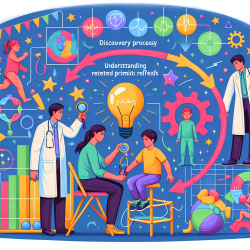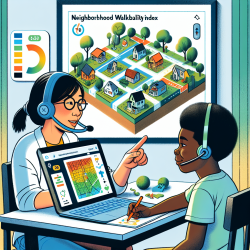Introduction
In the realm of speech-language pathology, ethical considerations are paramount, particularly when it comes to online therapy services for children. The research article "Building the Next Bioethics Commission" by Alexander M. Capron provides valuable insights that can be leveraged to enhance the skills of practitioners. This blog explores how these insights can be implemented to improve outcomes for children and encourages further research in this vital area.
The Role of Bioethics in Speech-Language Pathology
Bioethics commissions have historically played a crucial role in guiding ethical practices in various fields, including medicine and research. The insights from these commissions can be instrumental for practitioners in speech-language pathology, especially those providing online therapy services. Ethical considerations ensure that the therapy provided is not only effective but also respects the rights and dignity of children and their families.
Key Insights from the Research
The research highlights several key aspects of bioethics commissions that can be applied to speech-language pathology:
- Diverse Expertise: Commissions are composed of members from diverse fields, ensuring a comprehensive understanding of ethical issues. Practitioners can benefit from interdisciplinary collaboration to address complex ethical dilemmas in therapy.
- Public Engagement: Bioethics commissions emphasize the importance of public engagement and transparency. Practitioners should involve parents and caregivers in the therapeutic process, ensuring their voices are heard and considered.
- Consensus Building: The drive toward consensus in commissions can guide practitioners in reaching ethical decisions that are widely accepted and respected.
Implementing Ethical Practices in Online Therapy
For practitioners at TinyEYE, implementing ethical practices in online therapy can significantly enhance the quality of services provided to children. Here are some actionable steps:
- Regular Ethical Training: Practitioners should engage in continuous ethical training to stay updated on best practices and emerging ethical issues in online therapy.
- Parental Involvement: Encourage active participation of parents in therapy sessions to ensure transparency and build trust.
- Feedback Mechanisms: Establish channels for receiving feedback from parents and caregivers to improve therapy practices and address ethical concerns promptly.
Encouraging Further Research
While the insights from bioethics commissions provide a solid foundation, further research is essential to address the unique ethical challenges in online therapy for children. Practitioners are encouraged to contribute to research efforts and collaborate with experts in bioethics to develop comprehensive ethical guidelines tailored to online therapy.
Conclusion
By integrating insights from bioethics commissions into their practice, speech-language pathologists can enhance their skills and improve outcomes for children. Ethical practice is not only a professional obligation but also a pathway to building trust and achieving positive therapeutic results. For a deeper understanding, practitioners are encouraged to read the original research paper, Building the Next Bioethics Commission.










